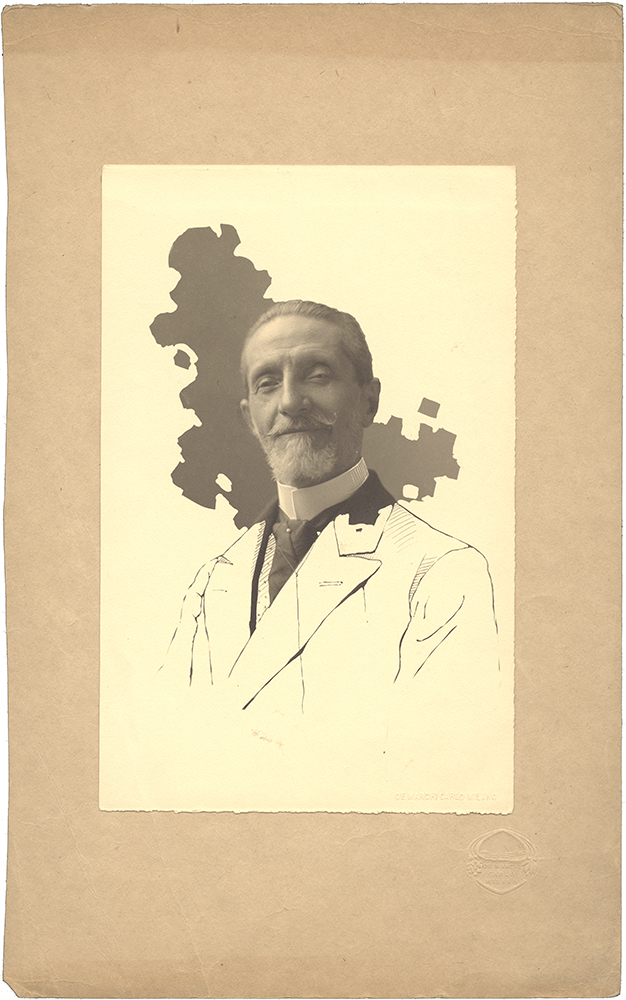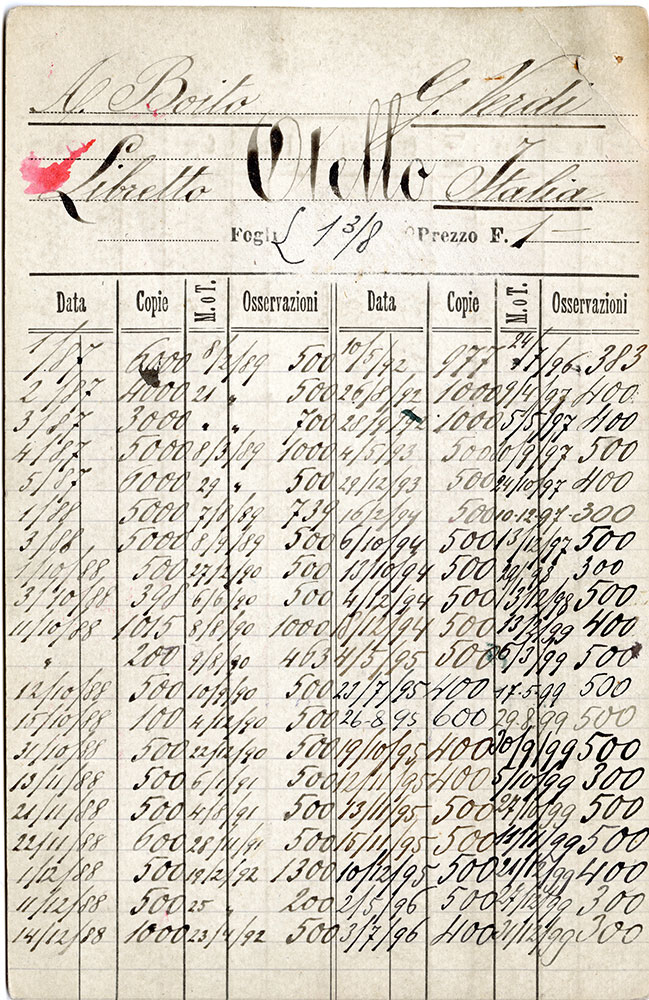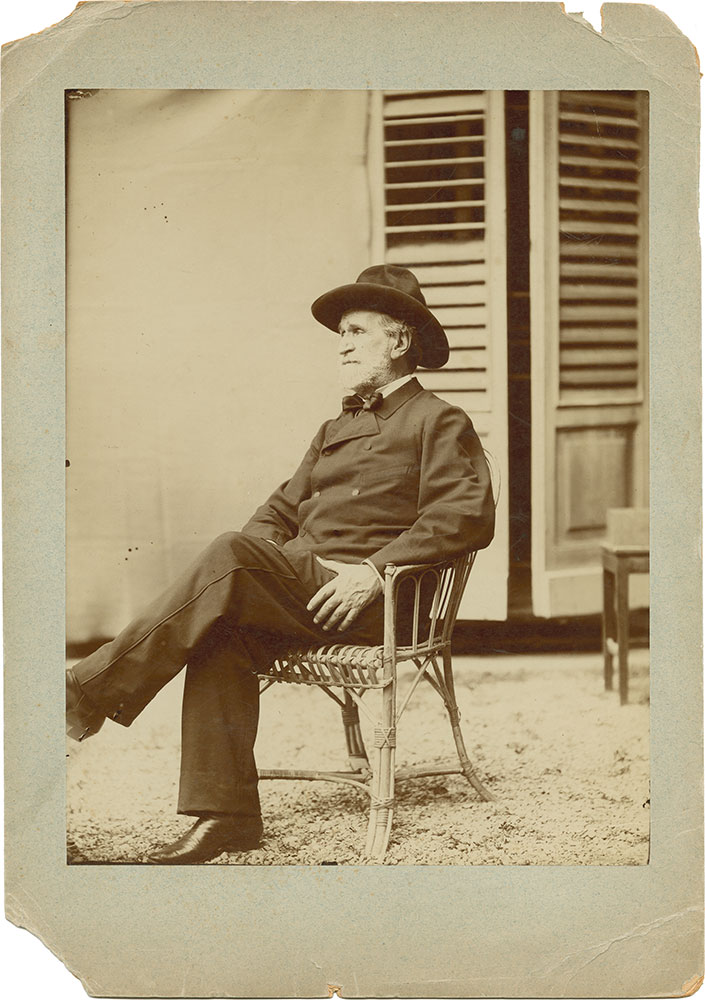Pierluigi Ledda, Managing Director of the Ricordi Archive, and Gabriele Dotto, Ricordi Archive Scientific Director and exhibition curator, discuss the history and resources of the Archive in general, and specifically the creation of Verdi’s operas Otello and Falstaff.
After Aida in 1871, except for occasional projects, Giuseppe Verdi (1813–1901), Italy’s pre-eminent composer, retired from opera at the age of 58. This, however, did not prevent constant pleas from his publisher, Giulio Ricordi (1840–1912), and his future librettist, Arrigo Boito (1842–1918), for the maestro to return to the operatic stage. Reluctantly coaxed out of retirement, Verdi composed what would become the crowning achievements of his career: Otello, premiered in 1887 and Falstaff, in 1893. This exhibition, based on The Enterprise of Opera - Verdi, Boito, Ricordi created by Bertelsmann/Ricordi and curated by Gabriele Dotto is the first in the United States to present rare documents and artifacts from Milan's Ricordi Archive and will offer visitors insight into the production of these two operas as well as the complex enterprise of bringing an opera to life. Set designs, costumes from Milan’s Teatro alla Scala, autograph manuscripts, contracts, publications, publicity, video excerpts from recent productions, and other objects in many media will permit visitors to experience the tremendous collaborative efforts behind an operatic production.
Verdi: Creating Otello and Falstaff—Highlights from the Ricordi Archive is organized by the Morgan Library & Museum, New York in collaboration with the Bertelsmann/Ricordi Archive.
Lead funding for this exhibition was generously provided by Marina Kellen French and the Anna-Maria and Stephen Kellen Foundation.
Pietro Tempestini (1843–1917). "Verdi a Montecatini Terme," 1899. Courtesy of Bertelsmann / Archivio Storico Ricordi, Milan, and Giuseppe Verdi (1813–1901) sketches for Otello, act 3, scene 5, 1885(?). The Morgan Library & Museum, Mary Flagler Cary Music Collection, 1968.




